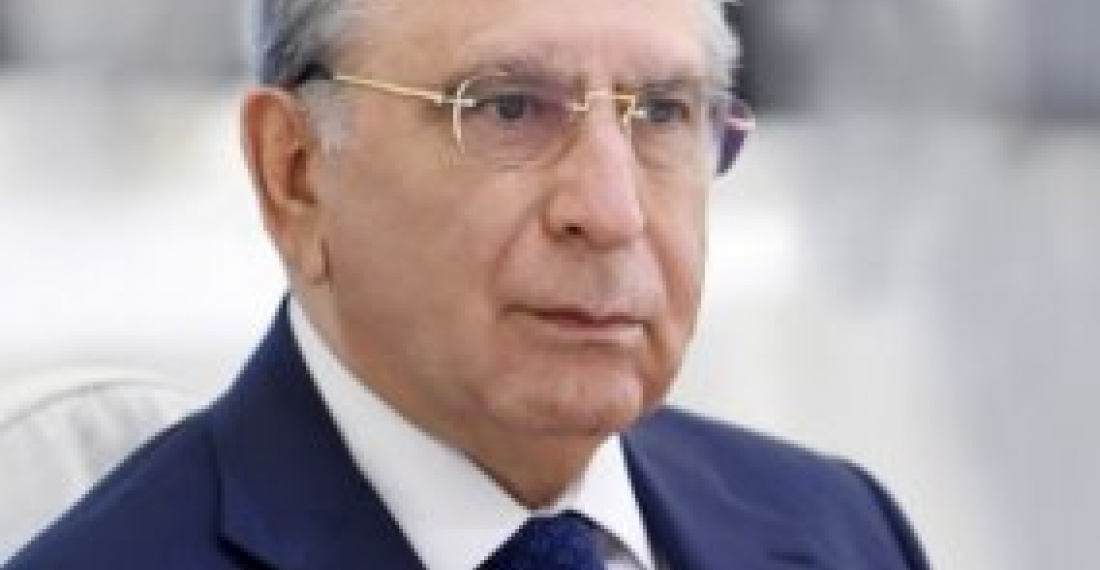In a rare intervention on the topic of the settlement of the Karabakh conflict, the veteran head of the Azerbaijani presidential administration, Ramiz Mehdiyev has published an article in which he says that the current authorities of Armenia, headed by Prime Minister Nikol Pashinyan, are not interested in continuing negotiations on a peaceful settlement of the Armenian-Azerbaijani conflict, and are trying to shift the responsibility in this matter to others. In the article Ramiz Mehdiyev expressed hope that "the Armenian leadership will realise all the advantages that the country can get from settling the conflict and will make the necessary steps to achieve a long-awaited peace."
The article was released by the official Azertac news agency on Tuesday (4 June) and widely disseminated by the Azerbaijani media.
The article examines the background to the Karabakh conflict, and the various developments over the years to try to resolve it.
In the article, the head of the Azerbaijani presidential administration says that Baku is ready to give security guarantees to the Armenian population of Nagorno- Karabakh , if Armenia withdraws its armed forces from the Azerbaijan territory it occupies. Mehdiyev called on the OSCE Minsk Group co-chairs to intensify efforts to achieve, first of all, the withdrawal of Armenian troops from the occupied territories of Azerbaijan and the return of Azerbaijanis to their homes.
Commonspace.eu political editor said in a comment that Ramiz Mehdiyev is the grand seigneur of the Azerbaijani body politic. He does not make public comments often, and on Karabakh his public pronouncements are even rarer.
"The article published on 4 June is therefore interesting both for its timing and its content. The new administration in Yerevan has been installed for more than a year, and in this period formal and informal meetings between the leaders - president Ilham Aliyev of Azerbaijan and prime minister Nikol Pashinyan of Armenia - have raised the hope that enough progress has been made for more substantive negotiations on the resolution of the conflict to start. The international mediators - the diplomats from France, Russia and the United States who chair the so-called Minsk group - were in the region last week trying to agree a timetable for the next meetings and steps. However as they were preparing to leave the region incidents erupted on the line of contact, where things have been reasonably quiet in the last year, resulting in two fatalities, one on each side. The circumstances remain contested by the two sides, but the incidents in any case have laid a cloud over the ongoing peace efforts. The article appears to be timed to refocus attention back to the negotiations.
The article, written in overall measured language, has three key messages: first it calls on the Armenian leadership to assume responsibility for the negotiations and stop trying to use delaying tactics; the second is a reiteration of the willingness of the Azerbaijani government to give security guarantees to the Armenian population of Nagorno-Karabakh. This has been said before, and Mehdiyev does not go into detail in how the Azerbaijani side proposes to do so, but the highlighting of this issue is significant. Finally Mehdiyev goes to great length to remind the Armenians of the benefit of peace, citing a recent report commissioned by the European Union on the economic benefits of peace. Nothing in the article is revolutionary, but the timing, tone and emphasis of the article, and the fact that it was published under the signature of Ramiz Mehdiyev, means that it requires proper attention."
related content: After fatal shootings on the frontline, Baku and Yerevan exchange diplomatic fire
related content: Peace in Karabakh will give a high economic dividend, new study shows
source: commonspace.eu with AzerTac News agency (Baku) and Haqqin.az
photo: Ramiz Mehdiyev (archive picture)







